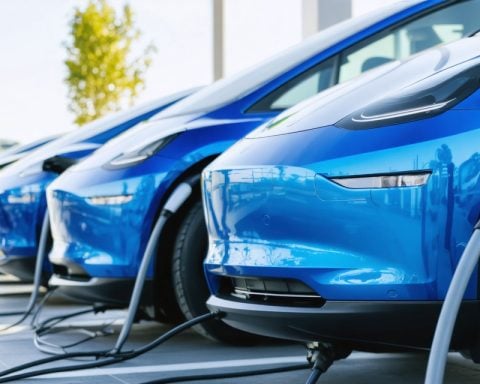Nissan’s EV Production Delays Raise Questions on Future Models
Nissan’s ambitious plans to transform its electric vehicle lineup are hitting some significant snags. Recently, the automotive giant announced a substantial $500 million investment in its Canton, Mississippi plant to ramp up production of new EVs. Originally scheduled to kick off this year, the timeline has been revised—now pushing production back to 2028 due to profitability concerns and fluctuating electric vehicle demand.
Additionally, sources indicate that the company has scrapped plans for a new electric SUV aimed to bridge the gap between its LEAF and Ariya models. Internal discussions reveal that Nissan is pivoting towards more lucrative projects in a bid to reshape its product strategy under CEO Makoto Uchida.
In an effort to support future electric models, Nissan recently secured a significant battery supply contract with SK On. This agreement entails procuring 20 GWh of batteries, sufficient to power approximately 300,000 electric vehicles destined for the U.S. market. Those batteries are expected to be integrated into vehicles starting in 2028, aligning with the revised production schedule.
Despite its setbacks, Nissan is striving to solidify a domestic supply chain to enhance its competitiveness in the crowded EV landscape. With market dynamics changing rapidly, Nissan’s strategy will undergo close scrutiny as it aims to regain its footing in the U.S. electric vehicle sector by the end of the decade.
Implications for the Future of Electric Vehicles
Nissan’s delays in ramping up electric vehicle (EV) production are symptomatic of broader challenges facing the automotive industry as it transitions towards electrification. The decision to postpone the release of new models influences not just Nissan’s market position but also the global EV landscape. As manufacturers struggle with profitability and changing consumer preferences, the shift towards electric mobility may slow, inhibiting overall market growth.
The cultural significance of EV production extends beyond technology; it reflects changing consumer values around sustainability and innovation. Public demand for environmentally friendly transportation is prompting manufacturers to rethink their strategies. Nissan’s reallocation of resources could serve as a cautionary tale, highlighting the balance between profitable production and meeting consumer expectations in a rapidly evolving market.
Moreover, the outlined delay could have significant environmental repercussions. With a slower rollout of EVs, the anticipated reductions in carbon emissions could be jeopardized, especially as traditional vehicle models remain in circulation longer. As automakers like Nissan struggle, the momentum towards renewable energy usage and sustainable practices might wane, jeopardizing earlier environmental commitments.
Looking ahead, future trends suggest that manufacturers may increasingly pursue partnerships and reshaped supply chains to navigate these challenges. Nissan’s contract with SK On for batteries may be a crucial step for not just its own strategy, but a move toward securing a more resilient domestic supply chain across the EV sector. As the decade unfolds, the industry’s adaptive strategies will ultimately determine its long-term significance in contributing to climate goals and reshaping transportation norms.
Nissan’s EV Future: Strategic Shifts and Production Challenges Uncovered
Nissan’s EV Production Delays Raise Questions on Future Models
Nissan, a key player in the automotive industry, is currently facing a multitude of challenges as it strives to revamp its electric vehicle (EV) range. The recent announcement of a $500 million investment in its Canton, Mississippi facility has only highlighted the company’s urgency to advance its EV production efforts. However, significant concerns over profitability and the fluctuating demand for electric vehicles have resulted in a revised production timeline, delaying the rollout of new models until 2028.
Current Landscape of EV Production
The decision to postpone production underscores a broader trend in the automotive sector, where companies are increasingly cautious about introducing new models in a rapidly evolving market. This caution is reflective of a growing industry trend where manufacturers are reassessing their EV strategies to ensure sustainability and profitability amidst fluctuating market conditions.
Strategic Changes and Innovations
Internally, Nissan is reportedly pivoting its focus away from developing a new electric SUV that was intended to fill the gap between the popular LEAF and the more recent Ariya models. Instead, Nissan’s leadership, under CEO Makoto Uchida, is directing resources towards projects that promise better financial returns. This strategic shift is a response to increased competition from both established car manufacturers and emerging EV startups, which are gaining traction in the marketplace.
In alignment with these changes, Nissan has made significant strides in securing essential components for its future vehicles. The recent battery supply contract with SK On, which involves procuring 20 GWh of batteries, positions Nissan to produce approximately 300,000 EVs targeted for the U.S. market starting in 2028. This move is crucial as it not only bolsters the company’s supply chain resilience but also aligns with its sustainability objectives.
Pros and Cons of Nissan’s EV Strategy
Pros:
– Investment in Infrastructure: The $500 million investment enhances manufacturing capabilities, potentially increasing efficiency.
– Strategic Battery Acquisition: Securing a substantial battery supply ensures readiness for future EV demand, helping to solidify Nissan’s position in the EV market.
Cons:
– Delayed Production Timelines: The shift to 2028 for production raises concerns regarding market readiness and consumer technology advancements.
– Scrapping Projects: The cancellation of the planned SUV model may limit options for consumers and reflect a reactive rather than proactive strategy.
Market Trends and Insights
As the EV landscape continues to evolve, Nissan’s challenges may mirror those faced by other manufacturers. Industry analysts are closely monitoring how automakers adjust their strategies in response to the economic environment and consumer preferences. Insights suggest that the long-term success of EV manufacturers will depend not only on technological advancements but also on their ability to navigate supply chain complexities and regulatory frameworks effectively.
Future Predictions for Nissan’s EV Segment
Going forward, Nissan is expected to intensify efforts in establishing a robust domestic supply chain. As EV competition heats up, predictions indicate that Nissan will need to accelerate the pace of innovation and adaptability. The company’s future success may hinge on two key factors: implementing agile market strategies and maintaining strong partnerships for critical components like batteries.
In conclusion, while Nissan faces production delays and strategic recalibrations, the commitment to enhance its electric vehicle offerings remains evident. As the company navigates these challenges, its focus on innovation and strategic partnerships will play a pivotal role in shaping its future in the competitive EV market.
For more information on Nissan and its electric vehicle initiatives, visit Nissan Global.













